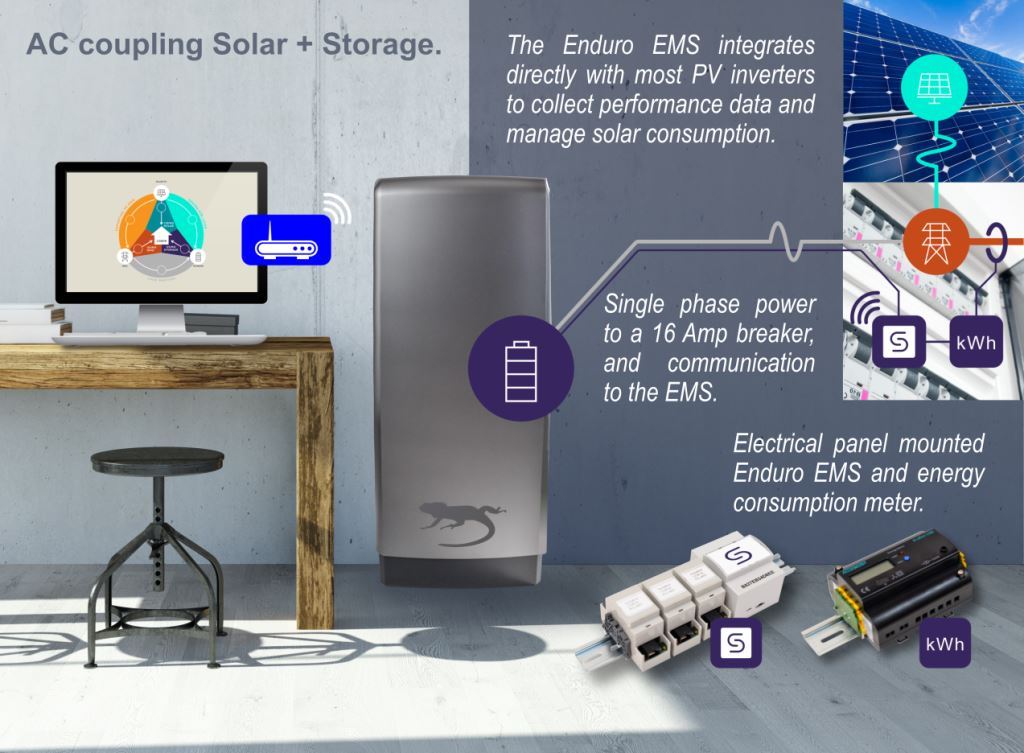
Supply chain disruptions caused by the COVID-19 pandemic hit Canada-headquartered residential and small commercial battery storage company Eguana Technologies’ sales figures hard, the company has said.
The company sells its own branded range of battery systems using both lithium iron phosphate (LFP) and nickel manganese cobalt (NMC) cells as well as supplying to customers that use Eguana products in their own energy storage systems. In reporting its quarterly financial results for the period ending 30 June 2021 (Q3 2021 according to Eguana’s financial year reporting), the company said gross margins on its energy storage systems were up significantly, but sales volumes were also down.
Enjoy 12 months of exclusive analysis
- Regular insight and analysis of the industry’s biggest developments
- In-depth interviews with the industry’s leading figures
- Annual digital subscription to the PV Tech Power journal
- Discounts on Solar Media’s portfolio of events, in-person and virtual
Gross margins were at 6.3% for the year-to-date 2021 at CA$251,895, compared to 1.1% for the nine months up to the end of June 2020 (CA$59,312). Meanwhile, product sales were down for that period by 28%, from CA$5,572,415 for 729 units sold in September 2019 to June 2020 to CA$4,007,321 for 458 units sold in nine months up to the end of June 2021.
Company management said that this was down to “a result of continued supply chain disruption and raw material delivery delays due to COVID-19. It expects to see a continuation of quarterly fluctuations in revenues, with the pandemic remaining a factor, along with what Eguana called variability in timing of customer purchase decisions and market growth rates. It has used proceeds of a private placement to enable it to shore up its inventory by moving from batch manufacturing to flow manufacturing.
The company’s net losses for the year-to-date over three quarters stood at just over CA$7.9 million compared to CA$6.26 million in the equivalent period last year, which had been a 154% jump over the equivalent period in 2019. Having never managed to make a profit so far and having accumulated a deficit of nearly CA$85 million, Eguana admitted that its ability to continue as a going concern depends on ability to complete equity or debt financings as well as turning its sales and engineering services operations into profitable ones.
“The Covid-19 supply disruptions have had an acute impact on shipping costs, depressing product gross margins. We estimate that under normalised shipping conditions, product gross margins would have been approximately 11% and should continue to trend upwards as volumes increase and cost reduction programs continue,” CEO Justin Holland said.
Company hopes VPPs, flexible manufacturing strategy, can turn around fortunes
Some recent highlights that the company will be hoping start to turn around its fortunes include the first order in a total US$3.6 million booking from the Hawaiian Electric company for an Emergency Demand Response Program, which the utility formed to help mitigate shortfalls in electricity as a result of a planned coal power plant closure.
Eguana also wants to expand the terms of its partnership with Japanese conglomerate ITOCHU in key markets like California and Australia and has entered into negotiations with an unnamed “multi-national battery company” to supply storage systems under a white label manufacturing arrangement. Eguana is hoping its systems will be more widely used in various virtual power plant (VPP) programmes around the world, is developing its own battery management system (BMS) and has doubled manufacturing capacity.
The COVID-19 pandemic is particularly impacting circuit board component and semiconductor chip supply chains, while growth in related industries like electric vehicles (EVs) is driving up demand for a limited supply of chips. Having used its private placement money to strategically build raw material and component inventory, Eguana is hoping to reduce long-term impacts. Eguana also has its own control platforms for battery storage systems, making it less dependent on outside suppliers than some competitors.
“While Covid-19 supply disruptions continue to create challenges, Eguana has successfully demonstrated its ability to engineer component flexibility, a key competitive advantage of our advanced power controls that we expect to help offset the on-going supply disruptions,” Eguana CEO Justin Holland said.
However, company management believes that availability of battery modules will be “the defining success factor for residential and commercial energy storage manufacturers”. It is pinning at least some of its hopes in that regard on a partnership with Norwegian battery manufacturing startup Freyr and its technology partner, semi solid advanced lithium battery tech company 24M. 24M, a spin-out from MIT labs, has signed a number of partnership deals with companies in the space that have spied its potential in the last couple of years.
“The 24M technology is targeted to deliver a 30%-40% reduction in battery costs versus current available technology. Itochu has brought multiple 24M licensees to the table and completing the BMS architecture is a key milestone to opening up future battery channels and cost savings for Eguana products,” Holland said.






